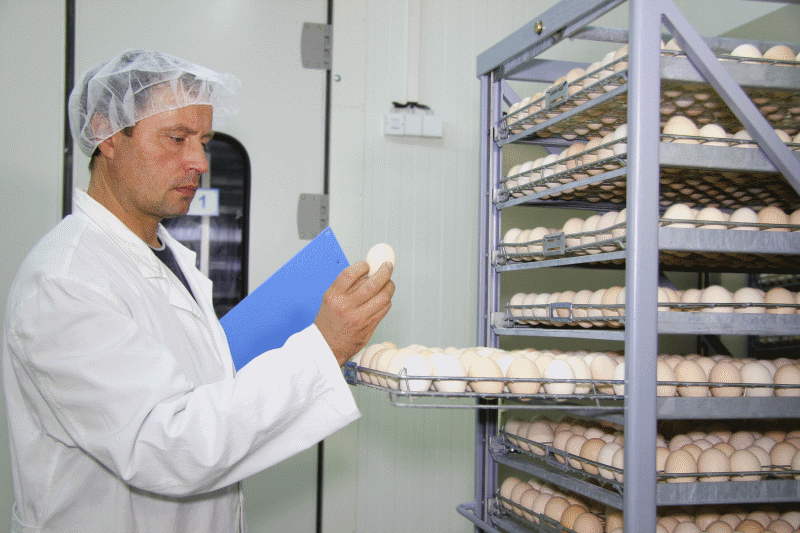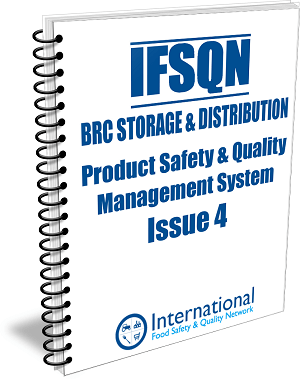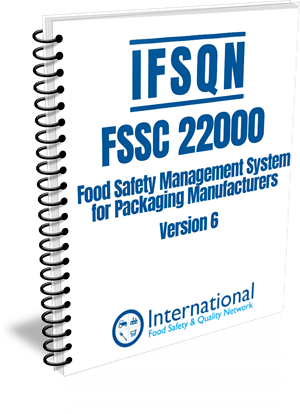- Home
- Sponsors
- Forums
- Members ˅
- Resources ˅
- Files
- FAQ ˅
- Jobs
-
Webinars ˅
- Upcoming Food Safety Fridays
- Upcoming Hot Topics from Sponsors
- Recorded Food Safety Fridays
- Recorded Food Safety Essentials
- Recorded Hot Topics from Sponsors
- Food Safety Live 2013
- Food Safety Live 2014
- Food Safety Live 2015
- Food Safety Live 2016
- Food Safety Live 2017
- Food Safety Live 2018
- Food Safety Live 2019
- Food Safety Live 2020
- Food Safety Live 2021
- Training ˅
- Links
- Store ˅
- More
Advertisement
Featured Implementation Packages
-
BRCGS Storage and Distribution Product Safety & Quality Management System - Issue 4
This is an ideal package for Storage and Distribution companies looking to meet... more
-
FSSC 22000 Food Safety Management System for Packaging Manufacturers - Version 6
This is our premiere package for Food Packaging Manufacturers looking to achieve... more
Latest Articles


IFSQN Launches Updated BRC System
Jun 02 2014 07:41 PM | Simon in
The IFSQN have comprehensively reviewed and updated our BRC Food Safety and Quality Management System for food manufacturers looking to meet the requirements of BRC Global Standard for Food Safety Issue 6.
Read story → 0 comments






Revised ISO/TS 22003 to boost FSMS certification
May 27 2014 06:25 PM | Simon in
The consequence of unsafe food can be serious and ISO's food safety management standards were developed to help organizations identify and control food safety hazards. Despite thousands of third party audit certificates issued against the standard since the publication of ISO 22000 back in 2005 consumer confidence in the food industry has been waning in recent years, calling for an urgent injection of trust.
Read story → 0 comments






Ten years on the ISO 22000 standard is set to be revised
May 09 2014 06:08 PM | Simon in
ISO 22000, the International Standard on food safety management systems was published in 2005. Since then, the markets' needs have evolved and in September this year there are plans to revise the standard.
Read story → 2 comments






Cornerstone of HACCP
Aug 31 2013 09:48 PM | Simon in
The Hazard Analysis & Critical Control Points (HACCP) is a systematic approach to the identification, evaluation, and control of food safety hazards. HACCP is a management system in which food safety is addressed through the analysis and control of chemical, biological, and physical hazards from unprocessed or raw material, procurement and handling, to manufacturing, distribution and consumption of the finished food product.
Read story → 0 comments






FSSC 22000 set to become the Global FSMS Standard
Jan 07 2011 09:25 PM | Tony-C in
A single, internationally accredited and recognized superior food safety standard has been the Holy Grail for many years; we are not there just yet but the introduction of FSSC 22000 takes us a major step closer. The FSSC 22000 standard is designed for food manufacturers who supply or plan to supply their products to major food retailers or major branded food companies and combines the ISO 22000 Food Safety Management standard with the Publicly Available Specification (PAS) 220 and other additional requirements.
Read story → 0 comments






Food Safety Certification: A Necessary Investment
Nov 24 2010 09:39 PM | ggansner in
The U.S. food industry has experienced myriad breaches in food safety resulting in food alerts and recalls over the past several years, which have injured or killed consumers and cost retailers, manufacturers and growers millions of dollars.
While the out-of-pocket losses are considerable, food safety breaches and recalls cost everyone in the food chain dearly. And there are other irreparable damages –– the decline or loss of brand image and the loss of consumer trust. The focus on U.S. food safety regulation and systems improvement, as well as the lightning speed of communication in the digital and social-media age brings food poisoning news to consumers in real time, allowing manufacturers and retailers little time to prepare public relations responses.
Read story → 0 comments






A Ten Step Guide to the BRC Food Safety Standard
Oct 24 2010 09:16 PM | Tony-C in
The BRC Global Standard for Food Safety publication has now become a leading global standard supported by major retailers throughout the world and adopted by over 8,000 food businesses in more than 80 countries. As management systems standards go it is a well organised document, written in clear language and reasonably user friendly. However, at 82 pages long it can overwhelm the newcomer and it easy for one to get lost in the plethora of requirements. The BRC Global Standard for Food Safety certification standard requirements are described in great detail in 7 sections throughout the standard. Some of the requirements may not be appropriate to all organisations; however the standard does stipulate 10 fundamental requirements without which certification cannot be achieved.
Read story → 5 comments






Implementing a Food Safety Management System
Feb 28 2010 08:55 PM | Tony-C in
All food businesses should implement a documented food safety management system based on Hazard Analysis Critical Control Points (HACCP) principles. This means food businesses should be aware of all the food safety hazards in their food operations and have systems in place to control them.
An important step in safeguarding food safety is the implementation of a structured Food Safety Management System that is incorporated into the overall management activities of the organization. The Food Safety Management System should address legal requirements in addition to physical, chemical, biological hazards identified by the HACCP.
Read story → 0 comments






The Food Chain
Apr 17 2006 08:36 PM | Simon in
With the publication of ISO 22000 for food safety management, a new tool has been added to the food safety portfolio. Oliver Cann investigates its role and the prospects for success. Concerns over food safety have been front-page news in recent years, from mad cow disease to E.coli outbreaks, from the debate over Genetically Modified foods to Sudan red dyes. In response to these concerns, the food industry is active in trying to find solutions which improve food safety. Existing food safety verification tools include the Dutch HACCP (Hazard Analysis Critical Control Points) Code, the British Retail Consortium (BRC) Global Food Standard, the International Food Standard (IFS), the Safe Quality Food (SQF) protocol and the Euro-Retailer Produce Working Group Good Agricultural Practices (EurepGAP) standard. All are actively used to help food retailers manage their supply chains and each standard supplies solutions in their respective markets.
Read story → 0 comments












